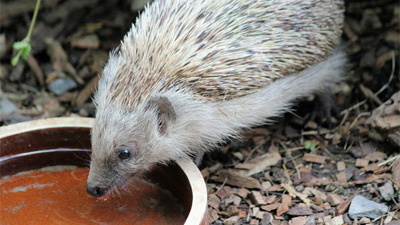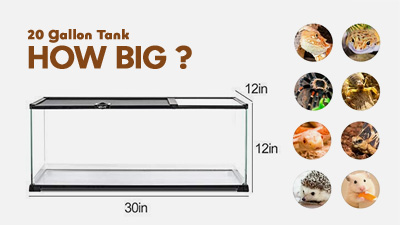How Long Do Hedgehogs Live as Pets? Average 6-8 Years

Photo by Liudmyla Denysiuk on Unsplash
Hedgehogs are fascinating and adorable creatures that have become increasingly popular as pets. With their spiky quills and inquisitive nature, it's easy to fall in love with these unique little animals. One question that often arises when considering a hedgehog as a pet is: how long do they typically live?
In this article, we will explore the factors that influence the lifespan of hedgehogs and provide insights into how you can ensure your hedgehog lives a long and healthy life as a cherished pet.
In the wild, hedgehogs have an average lifespan of about 3 to 5 years. However, as pets, with proper care and attention, they can often surpass this average and live for 6 to 8 years, and sometimes even up to 10 years. It's important to note that individual hedgehogs may vary, and there are several factors that can impact their lifespan.
Genetics plays a significant role in determining a hedgehog's potential lifespan. Some hedgehogs may have a genetic predisposition to certain health issues or conditions that can affect their longevity. It's essential to obtain your hedgehog from a reputable breeder who breeds for health and longevity, as this can increase the likelihood of your pet having a longer lifespan.
Another crucial factor in determining a hedgehog's lifespan is the level of care and attention they receive. Proper diet, suitable living conditions, regular veterinary check-ups, and a stress-free environment are all important aspects of hedgehog care that can impact their overall well-being and lifespan.
Diet plays a vital role in the health and longevity of hedgehogs. In the wild, they primarily feed on insects, small invertebrates, and occasionally small vertebrates. As pets, hedgehogs require a diet that replicates their natural feeding habits. A high-quality commercial hedgehog food formulated specifically for their nutritional needs is recommended as the staple of their diet. It's important to avoid feeding them foods that are high in fat, sugar, or additives as these can contribute to health issues and a shorter lifespan. Additionally, offering small portions of appropriate fresh fruits, vegetables, and occasional live insects can provide enrichment and variety to their diet.
Maintaining a suitable living environment is crucial for a hedgehog's overall well-being and longevity. Hedgehogs should be housed in a spacious enclosure with adequate room to explore, exercise, and exhibit natural behaviors. Providing hideouts, tunnels, and enrichment toys can promote mental stimulation and physical activity. The enclosure should be kept clean, with regular bedding changes and a suitable temperature range of approximately 70 to 80 degrees Fahrenheit. Proper humidity levels and good ventilation are also important considerations.
Regular veterinary check-ups are essential for monitoring a hedgehog's health and addressing any potential issues before they become serious. A veterinarian experienced in exotic pet care can provide valuable guidance on nutrition, health monitoring, and any specific care requirements for hedgehogs. Regular examinations, vaccinations if necessary, and a proactive approach to healthcare can help identify and address health issues promptly, contributing to a longer and healthier life for your hedgehog.
Stress can have a significant impact on a hedgehog's health and lifespan. Hedgehogs are naturally solitary animals and prefer to have their own space. It's important to respect their need for privacy and provide them with a quiet and calm environment. Loud noises, excessive handling, and frequent disruptions to their daily routine can cause stress and negatively affect their overall well-being. It's important to create a peaceful environment and establish a consistent routine to help your hedgehog feel safe and secure.
Socialization is another factor to consider when it comes to your hedgehog's well-being. While hedgehogs are not typically social animals, they can still benefit from regular interactions and bonding with their human caretakers. Gentle handling, supervised playtime outside of their enclosure, and positive experiences with humans can help build trust and strengthen the bond between you and your hedgehog.
In addition to these factors, it's worth noting that the lifespan of hedgehogs can be influenced by common health issues they may encounter. Some of these conditions include respiratory infections, dental issues, obesity, cancers, and Wobbly Hedgehog Syndrome (WHS), a progressive neurological disorder. Regular veterinary care, a suitable diet, and proactive monitoring can help detect and address these issues early, potentially extending your hedgehog's lifespan.
In conclusion, the average lifespan of a hedgehog as a pet can range from 6 to 8 years, with some individuals living up to 10 years or longer. Genetic factors, proper care, a suitable diet, a stress-free environment, regular veterinary check-ups, and attentive socialization are all crucial components for ensuring a hedgehog lives a long and healthy life.
You May Also Like
 Other PetsWhat is the Best Food for Hedgehogs?
Other PetsWhat is the Best Food for Hedgehogs? Other Pets10 Forbidden Foods for Hedgehogs
Other Pets10 Forbidden Foods for Hedgehogs Other PetsCan I Feed My Hedgehog Cat Food? Yes, Occasionally!
Other PetsCan I Feed My Hedgehog Cat Food? Yes, Occasionally! Other PetsWhat Do Hedgehogs Drink? Clean, Filtered Water
Other PetsWhat Do Hedgehogs Drink? Clean, Filtered Water Pet Names60 Good Names for Pet Hedgehogs (with Meaning)
Pet Names60 Good Names for Pet Hedgehogs (with Meaning) Other PetsHow Big is a 20-Gallon Reptile Tank in Inches?
Other PetsHow Big is a 20-Gallon Reptile Tank in Inches?